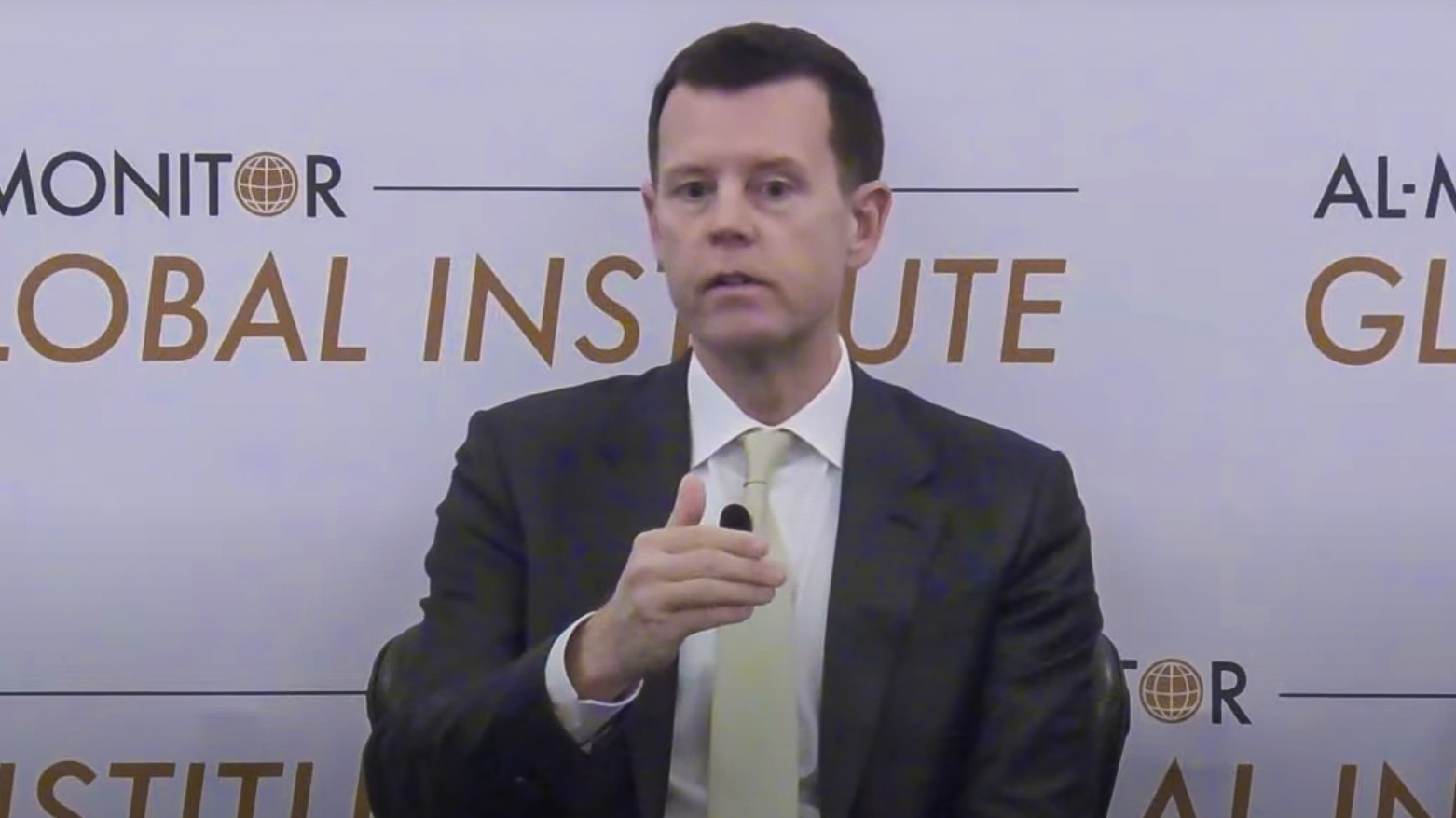KAR Group Executive Highlights Power Integration, Runaki Reforms at Washington Energy Conference
“Under the PM Barzani leadership, they now signed all of Erbil under [a] 24/7 power delivery program of which we have smart meters installed," said Brad Camp.

By Ahora Qadi
ERBIL (Kurdistan24) – During a panel at the Energy Conference in Washington on Thursday, Brad Camp, Chief Strategy Officer of KAR Group, offered detailed insight into the company’s integrated energy operations and its pivotal role in the Kurdistan Region's electricity reform initiative, particularly under the ambitious Runaki program.
“We See Power as an All-Inclusive Part of Our Business”
“It’s very nice to be here today with all of you,” Camp opened. “Kar is a fully integrated energy company based in Erbil, so we don’t see power as one piece of it — we see it as an all-inclusive part of our energy businesses.”
Outlining KAR Group’s expansive portfolio, Camp continued: “We have operation in the upstream where we produce both oil and gas. And from the oil side, we produce from nine reservoirs — more than any other oil company in Kurdistan. And on the gas side, we currently process 150 million standard cubic [feet] of gas for power generation.”
He added that KAR owns and operates “the largest private refinery in Iraq,” which enables the company to refine both its own domestic oil and oil purchased from partners.
Supplying Power to Both Erbil and Baghdad
On energy distribution, Camp noted a remarkable bilateral supply model: “On the gas side, the gas feeds in our power plant, which is currently a 1.5 gigawatt combined-cycle power plant. And interestingly, we sell power to two customers — we sell to the KRG and we sell an equal amount to the Iraqi federal government as well.”
He emphasized that this dual supply is “regulated and supported by the Ministry of Natural Resources, the Ministry of Electricity and the PM Office, to really recognize that we have a resource in demand and we should be sharing that resource since we are able to provide.”
A Vision Rooted in Post-2003 Reconstruction
Reflecting on the company’s origins, Camp recalled: “If we took a couple step back, I will tell you in 2004 after the liberation of Iraq, Sheikh Baz, the owner of KAR, looked around and he saw an amazing open field for energy development. And he saw nothing in the field — there was no oil production in the Kurdistan Region at the time, there was no refinery capacity at that time. And he said that we need to put a solution to cover every aspect and to look at the full energy value chain to be able to deliver for the people.”
Runaki: A Game-Changer for Power Delivery
Addressing the transformative Runaki initiative, Camp said: “Runaki — for those who don’t know — I participate in two ways: both as KAR selling the power, but also I live in Erbil and consume power.”
He explained: “Runaki is a project to deliver 24/7 power from the grid to the public. And before that, we had a mixture of ways to receive power — we had neighborhood generators that would emit exhaust smoke to provide power to our neighborhood, and we had grid power also. And the grid would be from anywhere from 12 to 13 hours, and all of that combined — the cost was expensive for consumers.”
Camp praised the reforms under Prime Minister Masrour Barzani’s leadership: “Under the PM Barzani leadership, they now signed all of Erbil under [a] 24/7 power delivery program of which we have smart meters installed. And we now pay — which will be a reformed price — a standard fee across all of that. And in total cost, as a consumer, my power bill — it did not fluctuate at all.”
“So it is very good that we can supply power from our power plant into Kurdistan grid for this important initiative of the government for the people,” he concluded.